Edinburgh council refuses to rule out congestion charge
- Published
- comments
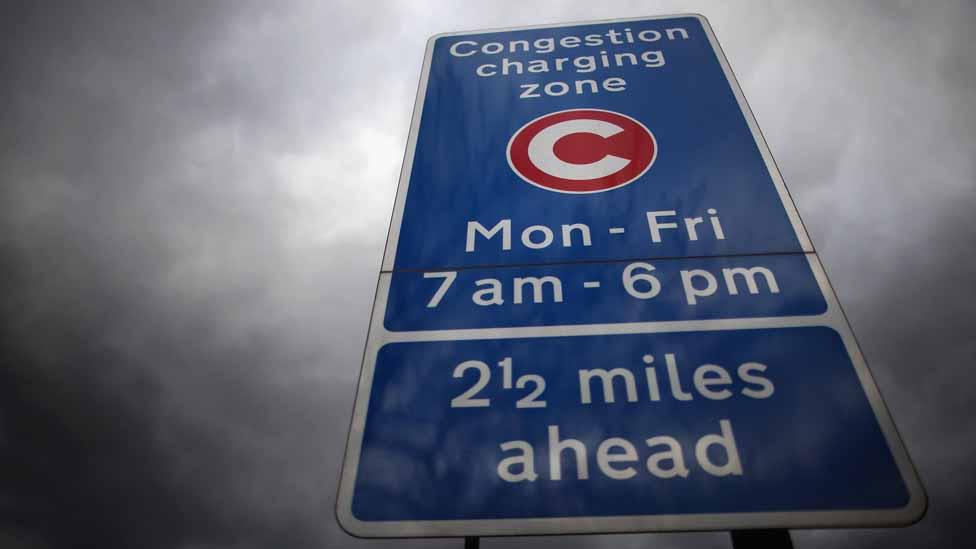
London introduced a congestion charge in 2003
Council bosses have refused to rule out bringing forward plans to introduce a congestion charge to help reduce traffic in Edinburgh.
In 2005 more than 74% of residents rejected such a toll but transport leaders are now reconsidering.
Changes could also include a workplace parking levy, in spite of opposition from Conservative councillors
Several city centre streets were recently closed to traffic in a bid to reduce air pollution.
The council has included the potential to "explore the introduction of road user charging to manage demand" as one of a range of measures in its early city centre transformation proposals.
But council officer Will Garrett warned the city mobility plan was not even at a first draft stage yet.
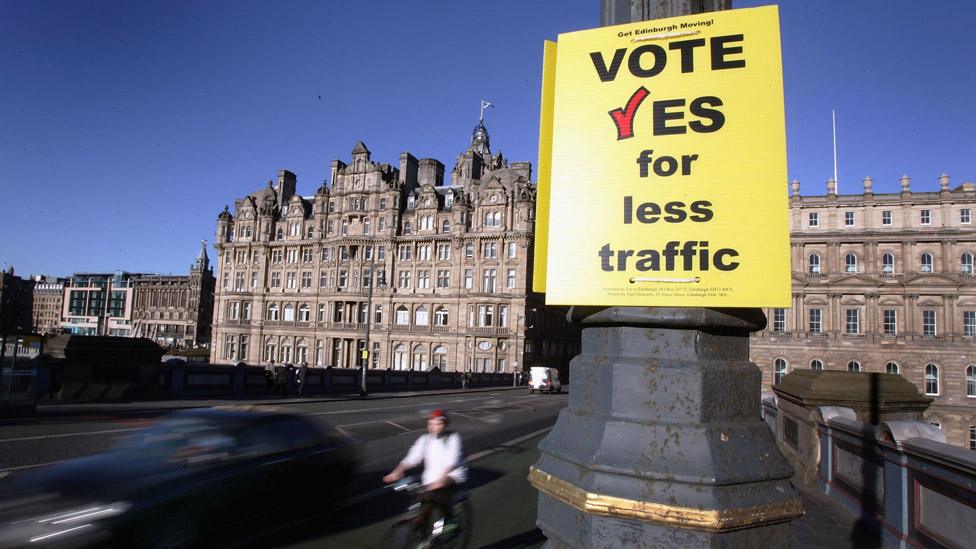
Edinburgh residents voted on congestion charge proposals in 2005
He said: "Demand management is about trying to address demand with a stick rather than a carrot.
"These are ideas, these are themes, they are proposals that have come forward through the engagement that we have had.
"There are ones that have come through with a significant level of support from people."
Mr Garrett said the proposals have been put in the framework.
He added: "We have got more work to do and we will look at the viability of those and whether progress can be made without them and at what point we need to bring in additional measures."
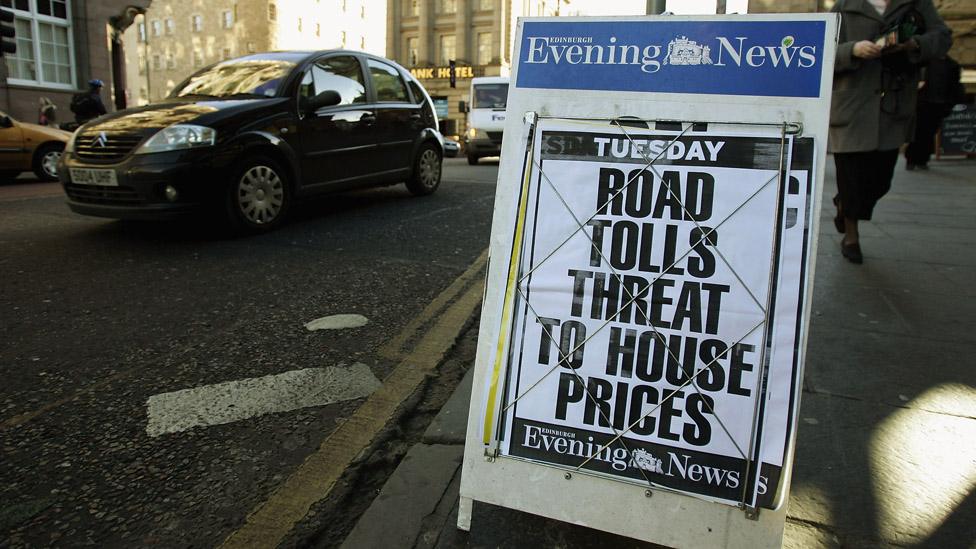
More than 74% of residents voted against a charge in 2005
Pressed by Conservative councillor Scott Douglas as to whether a congestion charge would be considered, if not enough people failed to move from car travel to public transport, Mr Garrett added: "If we get the level of modal shift that we are looking for, we may well not have to use these.
"At this stage, I cannot tell you hand on heart whether we will or we will not use these.
"They are all measures that are being used elsewhere successfully, so we need to give them serious consideration."
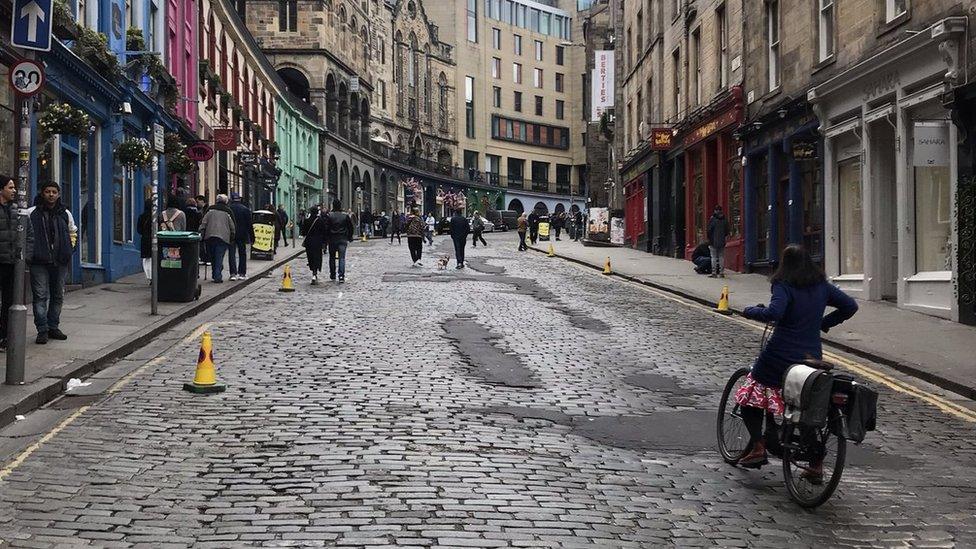
Traffic free days are being trialled in Edinburgh
Transport and environment convener, Councillor Lesley Macinnes, added: "Our vision for Edinburgh is to create a cleaner, safer and inclusive transport system, and I'm delighted that, under the city mobility plan, we will be able to move forward a range of measures to achieve this.
"Thanks to extensive consultation and research, we have been able to identify the key challenges facing the city, and the actions to tackle them.
"The city mobility plan is a critical part of the strategic landscape that will allow other key transport and place-making projects to happen, including city centre transformation and low emission zones, so I look forward to receiving the draft plan later this year."
Story provided by local democracy reporter David Bol.
- Published5 May 2019
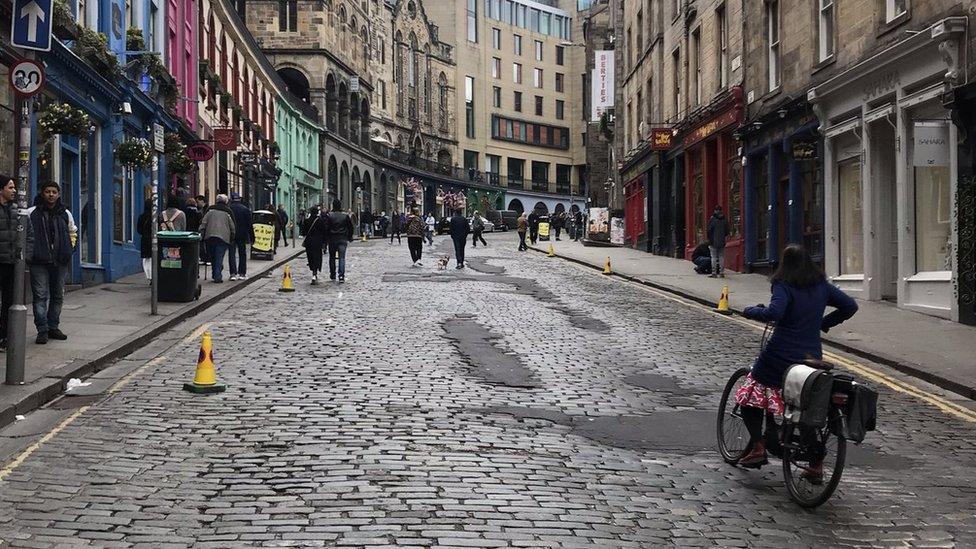
- Published11 May 2018
